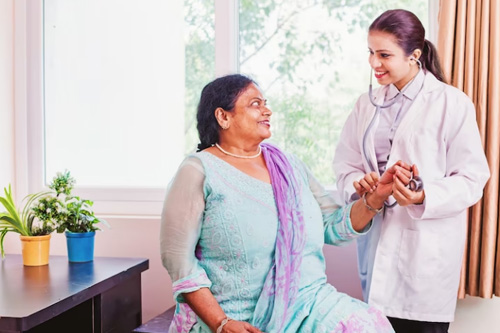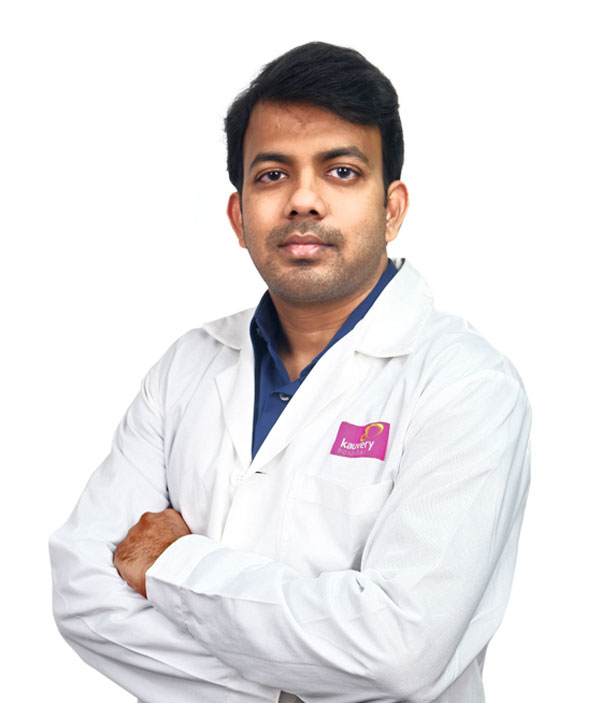Ambroise Paré was a famous French barber-surgeon, who lived during the 15th century. He practiced surgery in those darker times when there was no anesthesia, blood transfusion, antibiotics or even reliable methods to stop bleeding.
Battlefield medicine in the pre-antibiotic era was brutal. Even the smallest wounds could be fatal due to the ensuing infection and sepsis. Medical knowledge at that time was devoid of the basic understanding of the nature of wounds, infection or even the existence of germs and pathogens.

The established practice was to pour boiling elder oil on the wounds of soldiers to cauterise the war wounds lest they die of sepsis. However, this cruel practice was continued because it was still primitive times and only 100 years later Robert Hooke and Antoni van Leeuwenhoek made the outlandish discovery of the previously unperceived world of microorganisms.
Many soldiers were known to die of shock due to the pain from cauterisation. But there were no better alternatives.
On a particularly busy day, when Ambroise Paré ran out of oil, he used a self-made concoction of the few things available at the time which included turpentine and rose oil. Paré went to bed fearing that the soldiers who were not treated with the hot burning oil were going to die of septic infection. But he was astounded to find that the patients treated with his new ointment recipe had fared better whereas the soldiers who had the traditional burning oil poured on to their battle wounds were in severe agony.
Paré wondered in amazement. He had made a difference, but he didn’t know how it had worked. This event is distilled in Paré’s immortal words – Je le pansai, Dieu le guérit – I bandaged him but God healed him.
Once in a while, we come across such events, when all our contemporary scientific experience doesn’t provide any rational explanation.
I would like to share one such incident involving a patient, a 30-year-old Mr J, a case of road traffic accident. The victim was brought unconscious. Our emergency department did a swift job in stabilising him and CT brain revealed severe brain injury with a large intracranial bleed with significant brainstem compression. We wasted no time and he was shifted directly to the operation theatre from the CT console. I remember explaining to the distraught father that the chances of survival are bleak and that we would do our best.
Emergency decompressive craniectomy was done, the clot removed and the skin closed without the bone to allow for the brain pressure to expand and get dissipated outwards rather than inside into the brainstem which leads to death in such scenarios.
The patient was kept on sedation ventilation and multiple strong anti-edema intravenous medications for two days to prevent the excessive brain swelling that occurs from such severe brain injuries.
On the third night following surgery, the blood pressure started dropping and we were forced to maintain blood circulation using triple inotropic medications. Chest X-ray showed a very bad picture of bilateral aspiration pneumonia. The few hours that he had been lying unconscious and unattended on the road alone, (during the night of the accident, until a policeman spotted him and took him to a nearby hospital) had caused massive aspiration of gastric contents into the lung.
The severe lung infection had spread to the blood and caused septicaemia. Even with 100% oxygen through the ventilator, we couldn’t maintain his blood oxygen saturation.
Pulmonologists and ICU team headed by Dr Sridhar came to the rescue and the patient was put on prone ventilation for three days. Severe infections like these are killers and we had to do everything possible to prevent clinical deterioration.
The higher antibiotics had started working and we started seeing some light at the end of the tunnel. Inotropic requirements came down, blood pressure started to stabilise and it seemed for a moment that despite the stormy course initially, that we would make it.
But the worst was yet to come. Vital parameters were becoming unstable and the abdomen started getting distended. The patient had a CT abdomen when he was evaluated in the casualty which was normal. But delayed bowel and abdominal vascular injury is known in rare cases and is a catastrophic event in trauma patients. Our excellent team of medical gastroenterologists, Dr S Vadivel Kumaran and Dr Aravind stepped forward and provided valuable inputs to solve the medical conundrum. It was late in the night and Dr Babu Elangovan, our senior surgical gastroenterologist was immediately there to help with the case despite going back after a long day at work. It was a tough decision to make but we decided against laparotomy and started treating the associated acute severe pancreatitis. Dr Ram, our cardiothoracic surgeon helped us to promptly insert a chest tube to drain the pleural fluid collections which can occur with pancreatitis.
Multiple organs were affected and as a result of this, the brain swelling increased to a near-fatal level. Maximal surgical decompression had already been done and we had exhausted the limit of all medical measures.
Despite being on the best of the treatments by the finest specialists in every field, it was a losing battle.
Based on all the current medical knowledge and experience, we knew that death was imminent and it was only a matter of days.
The patient’s wife was kept out of the picture and the father was present most of the time to take care. They had been married for less than a year. She was five months pregnant at the time of the accident and the family wanted to protect her from further emotional trauma and kept her away from the hospital.
Since we had clearly told the caregivers that the patient is not going to make it, they decided to bring the wife to see him one last time. The patient, Mr J was critical and in a downhill course, on tracheostomy and on ventilator. He was in deep coma for days and there was no response even to pain. There wasn’t much hope left anyway. The wife walked in with tearful eyes, held his arms and began calling out his name, tried talking to him and eventually started crying out aloud. She was tapping his shoulder as if trying to awaken him. We stayed in the room as a witness to this encounter which may very well be the last. We stood in silent lamentation that was mixed with a feeling of utter helplessness. Then it suddenly happened. Mr J opened his eyes to our disbelief and even tried to turn to his wife’s side. It appeared to us as if he was trying to console her. What was happening there was impossible and beyond any reasonable medical explanation and it was baffling to all of us medical professionals present there. The next couple of weeks there was a fight back and despite all odds, the patient’s clinic status improved tremendously.
We were able to discharge him after nearly 6 weeks in hospital to a rehabilitation facility.
Four months later, I literally couldn’t believe my eyes when Mr J walked energetically into my OP, smiling and cracking a joke. Our nursing and paramedical staff who took care of him during his stay in the hospital, were overjoyed to see him and talk with him. None of us truly imagined that he would survive.
Medical battles are fought daily and our fellow doctors are the soldiers who fight alongside us in this war. I consider myself fortunate to have my Kauvery family with me, especially Dr Balamurali, my senior colleague neurosurgeon and our excellent team of neurologists, anesthetists, intensivists and nursing and allied staff for all the support.
But I wouldn’t dare say it is only medical expertise that saved Mr J. Maybe it was his wife’s relentless love that reached out to him beyond the coma or his father’s sincere prayers. Or as Viktor Frankl puts it, “the reason to live” and the strong will to meet his unborn child provided the ultimate motivation for Mr J to rise up from deep coma.
Such experiences make us feel humble and make us wonder how Ambroise Paré would have felt 500 years ago, amidst the bloody battle, taking care of innumerable wounded soldiers. Maybe it is the quiet reassurance that there is the presence of God or an Omniscient Will that heals, that gave him the courage and “Aequianimitas” to do his duty as a surgeon.
Even though such miracles are relatively rare, each doctor has his or her own collection of such impossible events. It is these Mr Js who make it worth all the hard work, dedication, sleepless nights and countless personal sacrifices of doctors. It is the ultimate dopamine rush that drives doctors forward to keep fighting no matter what.
Happy Doctors Day to all my colleagues…

Dr. Arunkumar Karthikayan
Associate Consultant – Neurosurgery
Kauvery Hospital Chennai

